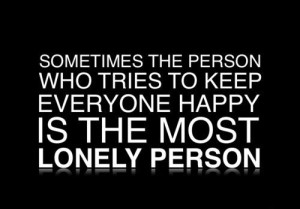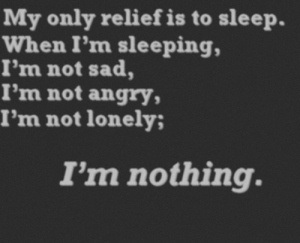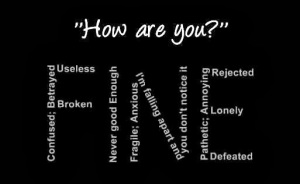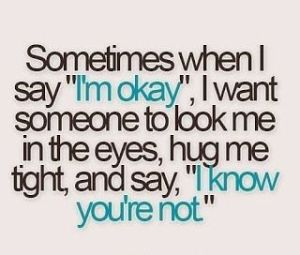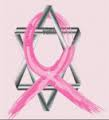This article really struck a cord…
The Forced Heroism of the ‘Survivor’
First Words
By PARUL SEHGAL MAY 3, 2016
For most of her life, Virginia Woolf suffered from what she called “looking-glass shame,” an aversion to seeing herself in mirrors. She wrote about it late in her career, not long before her suicide, recalling that the trouble began with one particular mirror. It hung in the hall of her family home, and when she was about 6, her half brother Gerald Duckworth lifted her onto a nearby table and put his hands under her clothes.
Woolf’s other half brother, George Duckworth, also began molesting her a few years later, paying her almost nightly visits for a time. She would go on to speak and write publicly about the abuse, which continued into her 20s — even confronting George — but mirrors continued to distress her. “It is so difficult,” she wrote, with uncharacteristic and moving awkwardness, “to give any account of the person to whom things happen.”
The question of what posture to take toward our own pain is unexpectedly complicated. How do we understand our own suffering — with what words and to what ends? Does great suffering always diminish us? These are the kinds of currents swirling around the word “survivor,” the increasingly popular term for people who have experienced sexual violence. Commonly used to describe those who had endured the Holocaust, the word was picked up by feminist groups organizing against the sexual abuse of children in the 1980s and has since broadened in scope and gone mainstream. At the Academy Awards in February, Lady Gaga performed her Oscar-nominated song for “The Hunting Ground,” a documentary about campus rape, accompanied by 50 men and women who had been assaulted, their arms painted with words like “survivor.” A day later, she spoke out about being raped as a teenager. “51, surviving and thriving,” she captioned a group photograph on Instagram. On social media, people post messages of support to themselves or others with the hashtag #survivorloveletter. “You are not what they took from you,” one woman writes to her younger self. “You are the monument of survival and recovery you erected in its place … you are a queen.”
The word has caught on with law enforcement, the Department of Justice and the White House Task Force on campus safety: “We are here to tell sexual-assault survivors that they are not alone,” its first report announced in 2014. A “survivors’ rights act” intended to “empower survivors to make more informed decisions throughout the criminal justice process” and demanding longer preservation of rape kits, among other things, was recently introduced in the Senate.
The evolving legal definition of rape has always been a bellwether of changing attitudes to race and gender, and the legitimacy of “survivor” signals a subtle but important shift in thinking about sexual violence. The historian Estelle B. Freedman has argued that the story of rape in America “consists in large part in tracking the changing narratives that define which women may charge which men with the crime of forceful, unwanted sex and whose accounts will be believed.” But, with a few exceptions, there have been few historical records of how victims of violence have named and understood their own experiences.
After all, for much of history, the “good” rape victim, the “credible” rape victim has always been a dead one, a serviceable symbol of defiled innocence around whom a group can rally — a suicide like Lucretia, whose rape catalyzed the founding of the Roman Republic, or any of the Catholic Church’s patron saints of rape victims (none of whom, incidentally, were raped; they martyred themselves instead). In literature, women have been ingeniously silenced: In Ovid’s “Metamorphoses,” they’re turned into birds and trees. One has her tongue cut out to keep her from testifying — a grisly and beloved trope that reappears everywhere from “Titus Andronicus” to “The World According to Garp.”
But beginning in the 1970s, books like “Kiss Daddy Goodnight,” “I Never Told Anyone” and “The Courage to Heal,” which collected first-person narratives of women who had experienced incest and child sexual abuse, brought the issue to the fore of public consciousness. They were among the first to pointedly use the word “survivor,” often replacing “victim” in a form of deliberate rebranding to emphasize women’s resourcefulness rather than their helplessness and the decisions they had made that allowed them to stay safe and sane.
But what once felt radical has blossomed into a rhetoric of almost mandatory heroism. I’m not a victim, I’m a survivor is the common refrain from women like Trisha Meili, the jogger whose rape in Central Park in 1989 roiled the city, and the actress Gabrielle Union, raped at gunpoint at 19 (“I hated feeling like a victim,” she said, “it makes you lazy”). Others prefer “thriver,” even “warrior.” There appears to be such an insistence on toughness that it’s impossible to think of a book like Alice Sebold’s memoir of her rape, “Lucky,” being marketed today as it was in 1999; the flap copy calls her attack “the crime from which no woman can ever really recover.”
Tell that to Jessica Jones, Imperator Furiosa from the “Mad Max: Fury Road” comic book, Lisbeth Salander from “The Girl With the Dragon Tattoo,” Olivia Benson from “Law and Order: Special Victims Unit,” the Bride in “Kill Bill.” The survivor — or pop culture’s fantasy of her — now cuts a distinctive silhouette: She’s damaged, but never so much as to be a figure of pity or revulsion; her wound makes her interesting, even alluring. Where the victim was abject, a figure of shame and isolation, the survivor is lithe and frequently well armed. She is a little scary and a little sexy, and her rage feels divinely sanctioned.
She crosses cultures: She is Priya, the star of a new Indian comic book who rides a tiger and fights back against her rapists. She is Maima, currently strutting across a stage on Broadway, an AK-47 strapped to her chest, in “Eclipsed,” Danai Gurira’s play about sexual captives during the Liberian civil war. Even when imprisoned, like the mother in “Room” or the “unbreakable” Kimmy Schmidt, she is endlessly resilient.
And she comes to life in recent campus protests against sexual violence. Last year Karmenife Paulino, a Wesleyan student, staged a photo shoot at the fraternity where she said she was raped, posing triumphantly in dominatrix gear alongside bound and gagged actors playing fraternity brothers. “One thing that has been very therapeutic to me as a survivor was finding creative outlets for my pain,” Paulino told a campus blog. “And so I just thought, What would reclaiming that space look like?”
The preference for “survivor” over “victim” is a shift in language that is as much ideological as linguistic. In “Bright-Sided,” her 2009 critique of America’s obsession with positive thinking, Barbara Ehrenreich noted a similar development among cancer patients. “The word ‘victim’ is proscribed,” she writes, deemed too self-pitying. Martial metaphors are preferred, and those who “lost the battle” are quickly forgotten. “It is the ‘survivors’ who merit constant honor.” And so, the pendulum swings from one extreme to another: from casting rape as insurmountable pain to casting the survivor as possessing superhuman strength.
It’s “looking-glass shame” all over again — that terror of facing your vulnerability — a treasonous thought in a society that is desperately optimistic and addicted to recovery narratives. There exists a small shelf of antisurvivor accounts full of frank, almost voluptuous despair — Edward St. Aubyn’s Patrick Melrose novels, Hanya Yanagihara’s “A Little Life,” Raymond M. Douglas’s memoir “On Being Raped” — all men’s stories, interestingly. But generally, the onus seems to be not only to survive but, as quickly as possible, to lift up others. Sexual-violence activists admit to the strain. Wagatwe Wanjuki, one of the people who stood with Lady Gaga at the Academy Awards, wrote recently at the women’s website the Establishment of the “invisible cost” of being a survivor: “You’re best known for enduring the worst experiences of your life.”
A word that was conceived to free women from stigma now feels, to some, prescriptive. “Compulsory survivorship depoliticizes our understanding of violence and its effects,” Dana Bolger, the executive director of Know Your IX, a “survivor and youth led organization” dedicated to fighting sexual violence in schools, wrote at Feministing.com. “It places the burden of healing on the individual, while comfortably erasing the systems and structures that make surviving hard, harder for some than for others.” The logic of “compulsory survivorship” neatly anticipates the conditions so many victims of violence face: the disbelief or indifference, the paucity of social support — to say nothing of the fact that, as Jon Krakauer notes in his book on campus rape, “Missoula,” if an individual is raped in America, more than 90 percent of the time the rapist will get away with it. It makes sense that an ethos of pluck and hardiness has taken hold. There is simply no alternative.
In Japanese, the word “trauma” is expressed with a combination of two characters: “outside” and “injury.” Trauma is a visible wound — suffering we can see — but it is also suffering made public, calcified into identity and, inevitably, simplified. Perhaps there was some latent wisdom in Woolf’s ungainly little phrase: “the person to whom things happen.” It’s roomy and doesn’t pin you down at any stage of suffering or recovery. It centers the person and not the event — which is crucial. Those who have faced sexual violence are so commonly sentimentalized or stigmatized, cast as uniquely heroic or uniquely broken. Everything can be projected upon them, it seems — everything but the powers and vulnerabilities of ordinary personhood.
———————————————————————————————————————————–
Parul Sehgal is senior editor at The New York Times Book Review, for which she writes the Roving Eye column on international literature.

